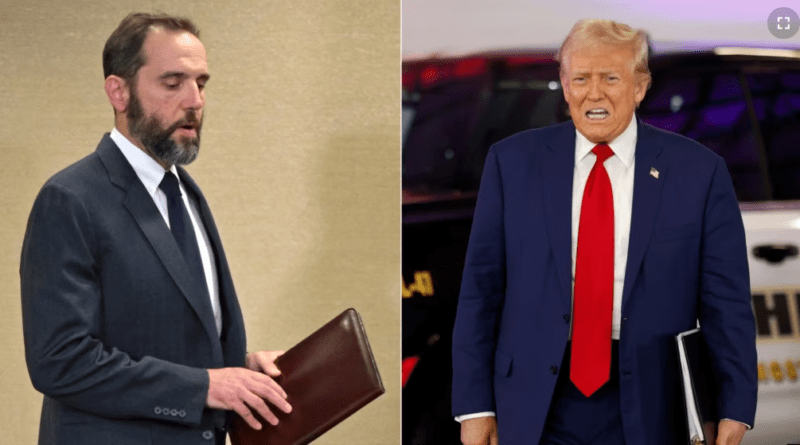Special prosecutor files new indictment against Trump in Jan. 6 case
Special prosecutor Jack Smith filed a new indictment against Donald Trump on Tuesday in connection with his efforts to overturn the results of the 2020 presidential election. The new indictment contains some of the same criminal charges as a previous document rejected after the Supreme Court’s decision to expand immunity for former presidents, but several sections have been removed.
Removed from the new indictment is a section accusing Trump of attempting to use the Justice Department’s law enforcement powers to overturn his election defeat, which the Supreme Court said in a 6-3 decision last month makes it impossible to prosecute Trump on that count.
The refiled charges represent the first attempt by prosecutors to comply with a Supreme Court ruling that is likely to lead to a significant review of the charges against Trump over his efforts to block a peaceful transition of power. It was filed three days before a deadline for prosecutors and defense lawyers to tell the judge how they want to proceed in light of the decision, which holds that former presidents are generally immune from prosecution for official acts committed while in the White House.
Both sides will return to court for a hearing next week for the first time in months, as the case has been effectively frozen since last December while Trump’s appeal worked its way through the court system.
In a statement on his Truth Social platform, Trump called the new indictment “an act of desperation” and “an attempt to revive a ‘dead’ witch hunt.” He said the new lawsuit “contains all the problems of the old indictment and should be dismissed immediately.”
The special prosecutor’s office said the updated indictment, filed in federal court in Washington, was handed down by a grand jury that had not previously reviewed evidence in the case. The statement also said the indictment “reflects the government’s efforts to respect and implement the Supreme Court’s decisions and guidance.”
The major changes in the updated criminal case centered on Trump’s actions regarding the Justice Department.
The original indictment included allegations that Trump tried to implicate the department in his failed attempt to overturn his election defeat, including conducting sham investigations and falsely claiming to have found significant election fraud in several states.
It detailed how Jeffrey Clarke, a top Justice Department official in the Trump administration, wanted to send a letter to elected officials in several states falsely claiming that the department had “identified significant problems that may have affected the outcome of the election,” and asked department leaders to sign the letter, but they refused.
Clark’s support for Trump’s allegations of election fraud led the then-president to publicly consider appointing him as acting attorney general to replace Jeffrey Rosen, who led the department in the final weeks of the Trump administration. Trump eventually dropped the idea “when he was told it would lead to massive layoffs at the Justice Department,” according to the original indictment. Rosen remained acting attorney general through the end of Trump’s term.
Clarke’s name as a co-conspirator is no longer mentioned in the new case. Trump’s co-conspirators are not named in any of the indictments, but their identities have been established through public records and other sources.
In its decision, the Supreme Court ruled that the president’s interactions with the Justice Department were official acts, giving the former head of state judicial immunity.
“As we have explained, the President’s authority to remove employees of the executive branch of the United States government whom he has appointed cannot be regulated by Congress or reviewed by the courts,” Chief Justice John Roberts wrote in the decision on behalf of the Supreme Court.
The justices returned other key charges in the case to District Judge Tanya Chutkan, who is handling the case to determine what constitutes an official act protected from prosecution.
The new indictment still includes one of Smith’s most shocking charges – that Trump participated in a scheme orchestrated by his allies to enlist fake electors in key states whose elections were won by Democrat Joe Biden and who falsely claimed that Trump had won those states.
It also preserves allegations that Trump tried to pressure Vice President Mike Pence to reject legitimate electoral votes, and that Trump and his allies used the chaos at the Capitol on Jan. 6 in an attempt to further delay approval of Biden’s victory.
Justice Roberts wrote in the Supreme Court decision that the interaction between Trump and Pence was an official act, and as a result, “Trump is at least presumptively immune from criminal prosecution.”
The question is whether the government can rebut that presumption of immunity.
